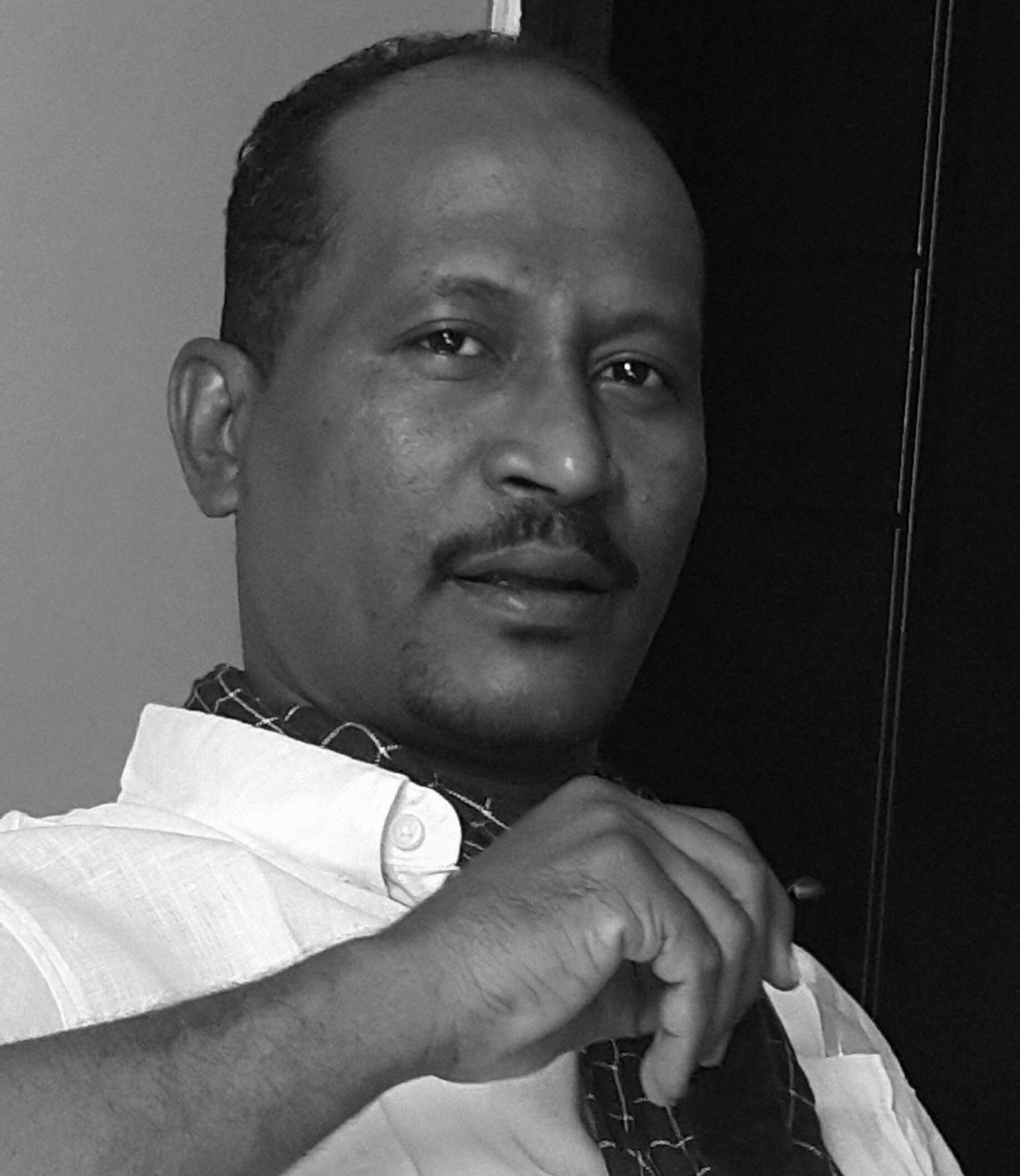
Bilateralism of Osman Hussein and Mohaned Al-Tahir
Mohamed Abdelmajid
More dangerous than the war itself and the scope of its conflicts (fiery) and its aftermath (military), and (ocular) injuries, is that the war creates (a state) for itself, and has (an entity) and (government) under the exchange of (governments) declared by both sides after exchanging (fire).
The continuity of war and its long duration means accommodating it and coexisting with its painful and distressing assumptions in a (peaceful) manner.
The war that rages between the army and the Rapid Support Forces has created (politics), (culture), (language), (media), (diplomacy), and (preachers) for it, and it now has a history and heritage!
Even more dangerous is that it has created (an economy) for itself, and the war has become global markets from which weapons are imported, and domestic markets where stolen goods are displayed, where (neither eye has seen nor ear has heard), and those markets have become known as (Daglo markets) and they have spread terrifyingly in the capital, offering their goods and their own currencies.
I compare what used to be displayed in the protest square (You have bread, you have dignity) with what is now displayed in the markets of stolen goods, and I say there is a world of difference between what the revolution produced and what the war produced. At that time, peoples language was (O arrogant racist, the entire country is Darfur), unlike the language that now prevails, filled with hatred, racism, and animosity.
The youth of the revolution died guarding the barricades, stones, and streets, while the war forced families to flee their homes and leave their property and money behind.
There is a vast difference between a revolution where martyrs are honored, and their stories, names, and images circulate among the people, and those who are now killed by the war, whether accidentally or intentionally, are not announced, and we know nothing about them!
Until now, there is no accurate statistics for the dead, and each side hides the number of its casualties and covers them up.
The beneficiaries of this war multiply and strengthen their influence and their current against the current of ending the war every day. This vertical escalation of war is more dangerous than the horizontal expansion concerning the capital, the general command, and the presidential palace.
The war currently underway is raging in the hearts of Sudanese. The real occupation is not only in homes and hospitals, but also in hearts and minds.
Do not reconcile with this war, and do not give it literature or sanctity that reaches the point of rejecting its cessation.
The sound of (bullets) should not be louder than the sound of (no to war).
In a few days, the war will enter its seventh month. The (temporal) scope of the war is more dangerous than the (spatial) scope.
Khartoum, the national capital, has lost its security and safety, and looting and plunder have become the prevailing characteristic there. Homes have not only been emptied of their inhabitants but also of their belongings and furniture.
Now we are in the stage of looting beds and mattresses. After electrical appliances were looted, and before that, gold, jewelry, and cash were looted. I hope we do not reach a stage where we witness the looting of clothes and pillows. The stage of (mourning) we have passed.
Those who believe that there will be no accountability for these matters are mistaken. They will be held accountable, even if it takes time.
Peace does not mean that God has forgiven what has passed. If you escape the reckoning of this world, you will not escape the reckoning of the hereafter, and even with their weapons and defenses, the terror that they have inflicted upon others is the harshest reckoning that can befall them.
Lucius Annaeus Seneca, also known as Seneca, a Roman philosopher, orator, and playwright, once said something closer to scientific truth: To cause fear in others means you will be afraid for the rest of your life. No one has ever been able to instill fear in peoples hearts while maintaining inner peace.
Inner peace is more important than peace in its conventional sense and its usual political dimensions, and these people have lost their inner peace.
Do not think that those who are causing fear to the people in Sudan now are living their lives normally. Do not be deceived by the explosions and the thunder. These explosions are nothing but a sense of fear and panic. Those who caused peoples deaths, displacement, suffering, and loss of their property are living in worse conditions than those who suffered direct harm.
Sometimes indirect or unseen pain is greater than direct pain! Material or physical pain can be dealt with, but moral pain is the most dangerous, and its effects can last for generations.
The one who loses their humanity in this war is the biggest loser in it. Do not calculate losses only in terms of money and lives; there are other losses in conscience, ethics, and positions, and there is another reckoning, even if you escape the reckoning of this world.
I do not know how those who led us to this disaster did not hear my song singing about the migratory bird: Your wings have grown tired from flying / In our land, you find rest in the shade / The shade has lost its calm. Did they not hear my song or see it as it descends and rises to take a deep breath and bring pearls from the depths of my throat: And time has added to its preciousness / With you, it prospered in the Dalib / The Dalib has lost its serenity?
If they had listened to Fear God in my voice (radio recording), this war would have stopped.
Among my firmly held convictions is that we could have extracted from Salah bin Al-Badias voice many times more than we extract from the electricity of the Merowe Dam.
Always in my convictions, I believe that Salah bin Al-Badias voice contains an element of (healing with herbs). I also believe that the voice of Abdelaziz Mohammed Daoud is a unique version in the world. If Abdelaziz Mohammed Daoud were (Russian), they would have reached the moon with his voice. Abu Daouds voice is like a (spacecraft).
In Aisha Al-Fallatis voice (sweetness), she made (Sesame of Kassala) reach a level of enchantment comparable to (grapes).
A country presented the ostrich to Adam to sing for the handsome man, and it presented Sadeq Abbas to write through the airwaves. I dont know how there is room for a bullet in it?
Tango could reflect it in (17) languages. Haitham Mustafa used to transmit it with a (diplomatic passport), and Anwar Al-Shalala used to be the ball at his feet like (Terzi on the day of the stand).
I used to dream of a duet between Osman Hussein and Mohaned Al-Tahir, like the duet of Osman Hussein with Hussein Bazarah. In Osman Husseins voice, there is agility, and in Mohaned Al-Tahirs goals, there is yearning.
My uncle, who is a man who doesnt listen to songs, when he hears Osman Hussein singing Our Story, he says, This guy (the hoopoe) flipped in this moment (every migratory bird crossing the sea carried my intense longing, to you, my love, to the homeland, to its soil, to its shores, to the tender house).
In Khalil Ismails songs, there is a measure of our own wishes, (Tomorrow, my saddened heart, you will find happiness) and (And in your journey, O breeze, convey to my beloved, and what matters is that you find him well).
Tayeb Abdullah sang Night of Joy, and he sang My Old Days, and he sang The Years. After all that, Tayeb Abdullah would say, I miss the time, and you are the one I forget. He didnt stop at that biological (musical) hour, and he sang to Ibn Zaidoun, Even if time obeyed my command, I would ransom you from its afflictions with my soul. I dont know what Tayeb Abdullah wants to do with time more than that? Indeed, he is a pitiable lover.
In the same (temporal) context, Abdul Rahman Abdullah sang Your Ear for One Moment, and Mohammed Mergani sang In this moment, I missed you, and Mohammed Al-Nasri sang And the years, O passerby, expand when we count them in seconds, and Mustafa Sayed Ahmed sang in The Moon of Time (Drawn on the face of seconds, shaded), and Ibrahim Awad sang, If Im truly longing, you wont be absent for a minute, and Hussein Shendi sang, How many hours? Khalil Ismail sang, Two hours before our appointment, and Zaidan Ibrahim sang, On this night, and Najm Al-Din Al-Fadil sang, Nights of intimacy with waistbands, and Saeed Khalifa sang in the end, A day in a strangers day, and Ahmed Al-Mustafa sang, Days pass, and behind them are nights, and Hashim Mergani sang, A complete week, and Isa Brouy sang, Two weeks without coming to us, and Hamad Al-Raih sang, A month, two months, and the third time, and the war is about to complete its sixth month!
We fear that the war calendar will enter Mohamed Al-Amins musical calendar (four years), and (five years).
But we trust and believe that the end is near, and that, God willing, October will bring relief and deliverance.
O Allah, protect Sudan and its people.


